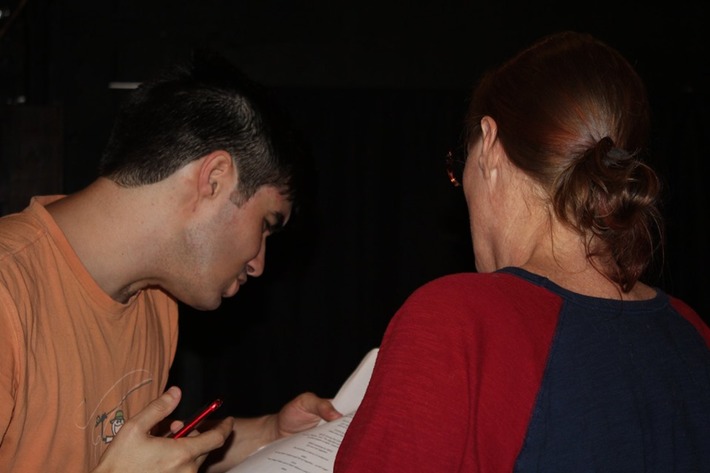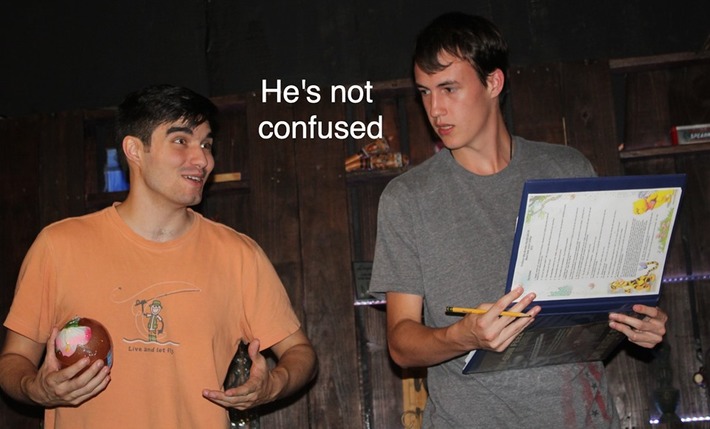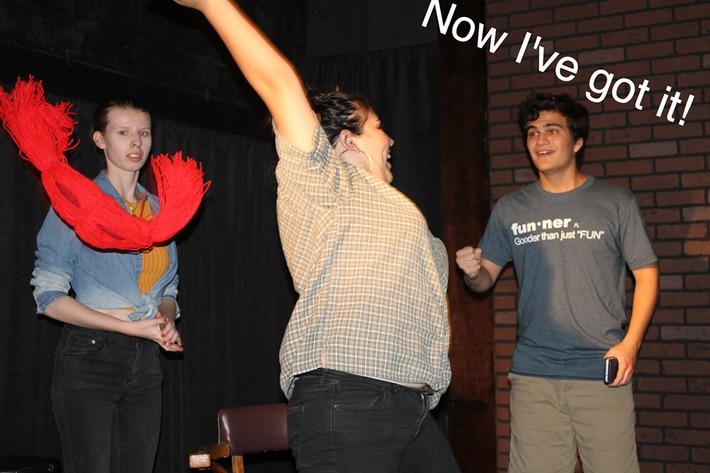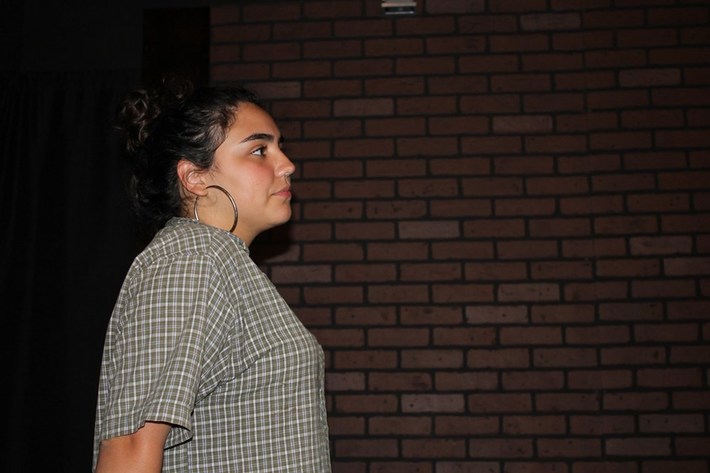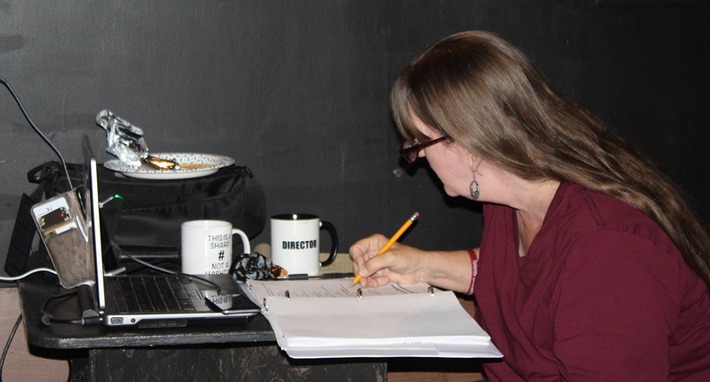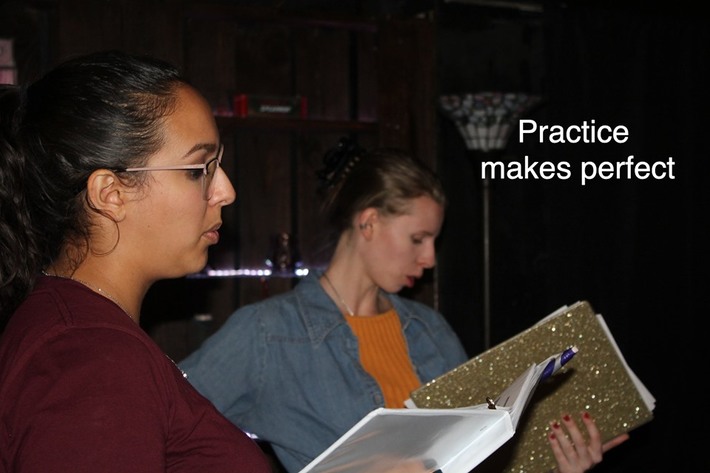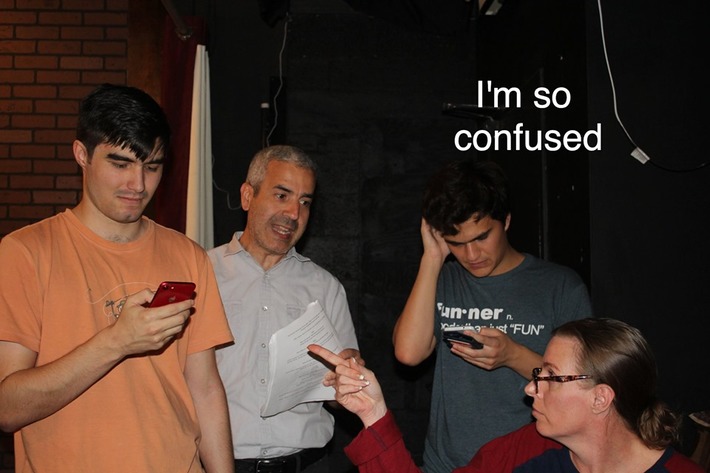There are, of course, many reasons that performers perform. When I was growing up, my dear mother invested much time and money on piano and dance (and yes, even a little bit of violin and voice). So when people came over to visit, she naturally wanted me to play piano for them. I would resist and put up a big fuss - I REALLY did not want to play for anyone. But once I was finally pressed into duty, my audience would give me the obligatory compliments and I would respond by telling them everything that was wrong about what they just heard. What a joy that must have been for everyone!
In high school, I ended up in choirs and performing groups. We were unstoppable, singing everywhere we went. We’d line the aisle at McDonalds and do our choreography, and walk the mall singing all our songs.
Much of the differences in attitude and experience can be attributed, at least in my case, to the group versus individual performing experience. As a pianist in the living room, all eyes were on me. As a singer on stage or on the street, I was part of a group experience and it was about “us.” Now as a teacher, of course I have a different “perspective” (nod to the Vessels of GOLD theme for 18-19). For my individual students, I don’t want to emphasize that it’s about “making dad proud” or “showing off” or “getting attention.” Instead, I believe it’s important to give what you have and share what you’ve learned. Think of the “little drummer boy.” He shared what he had. He played the best he could. He gave all of it back to the One who gifted the boy in the first place.
As a group, it’s more complex because it involves all of the above, but you’re working as a team. From what I see in the movies, it’s not that different from the football or mighty ducks or baseball team. Everyone has strengths and weaknesses, and they practice together to the point that they know a lot about each other. They know how to work together, and when the pressure’s on, they know what needs to be said and done to get the job done.
But again, why? Why perform? Certainly, to show what you’ve learned together, what you’ve accomplished after all those hours in rehearsal. What else? To entertain. Laughter is good like medicine. Entertainment (without debauchery) is healthy for the soul. Sometimes a “performance” reaches another level as music or a story will sometimes shock us with its impact by discovering some buried treasure of thought or emotion. There are stories to be told. We learn from stories. From historic accounts to parables to a personal story about the stray dog we encountered, we share our stories and our world is broadened and enriched.
As an individual performer, we stand exposed. That’s not a bad thing. Here I am. Just me. And I have something to “say.” In a group, it certainly feels safer, but it’s not necessarily easier. You can control yourself, but not a group. If you mess up, you let the whole group down. If someone else messes up, they let you down.
It’s like life! How often do we say, or at least think, that life would be a whole lot easier if everyone would just do it the way I do it and think the way I think? So rehearsing and then performing together, we learn that people mess up and do things differently. How are we going to handle it?
So these random bits and pieces float around out there as part of the overall experience of “performing.” But we haven’t really gotten to the root. As a director of performing groups, I feel like I’m constantly trying to convince people (through ads, social media, pictures, video, etc.) to come and see what we’re doing. Why? Because I want them to see how good we are so we can get more people and build more programs and become famous? God forbid. Does pride ever sneak in? Absolutely. But that’s a temptation that any performer will need to struggle with at least occasionally.
But, keeping our eyes on the goal - why do we want to invite and perform? Because we want to share. It goes back to why we sang in the mall and everywhere we went. We want to share something that brings joy to us. You don’t hide a light under a bucket (Deb’s book of paraphrases). You turn on a light because you want light! You practice and learn so that you can share the joy and experience with others.
As parents, do you invite because you want someone to see your talented son or daughter? That is definitely a tempting factor (says the parent of four talented children...let me tell you...oops, I digress). But maybe we have a hard time (sometimes) finding venues and coercing people to come because they are not as interested in your children as you are. They assume (wrongly) that time and money is best spent seeing professionals tell a slick and edited story on a movie screen than seeing a “bunch of amateurs try to emulate them.” But that’s not what we’re about. We tell our own stories in our own way. Our shows become a unique contribution to the stories of life because we have worked together to form and tell them.
We’re not “professionals” and we’re not about trying to make movie and Broadway stars. We’re not a talent agency. We are about “Growth Opportunities for Learning and Development.” GOLD. Gold in life is searched for, treasured, refined, shaped and set aside for special purposes. Each individual that comes through our doors comes with gifts and talents that can be found, treasured, refined and shaped - and then NOT hidden under a bucket. We share what we have. We practice. We do our best. We share our stories and our songs. We share with our families and our community and anyone that will listen. And we hope many will listen and learn and grow.
So “performing” is “sharing.” We should do it graciously, thankful for the opportunity. It is not so the spotlight will be on us, but it is for us to turn on the light and let it shine into darkness.
When we finish sharing what we’ve done, we hope our audience will say thank you from their hearts (usually indicated with applause), and we teach that our bows are a simple indication of “you’re welcome.”



